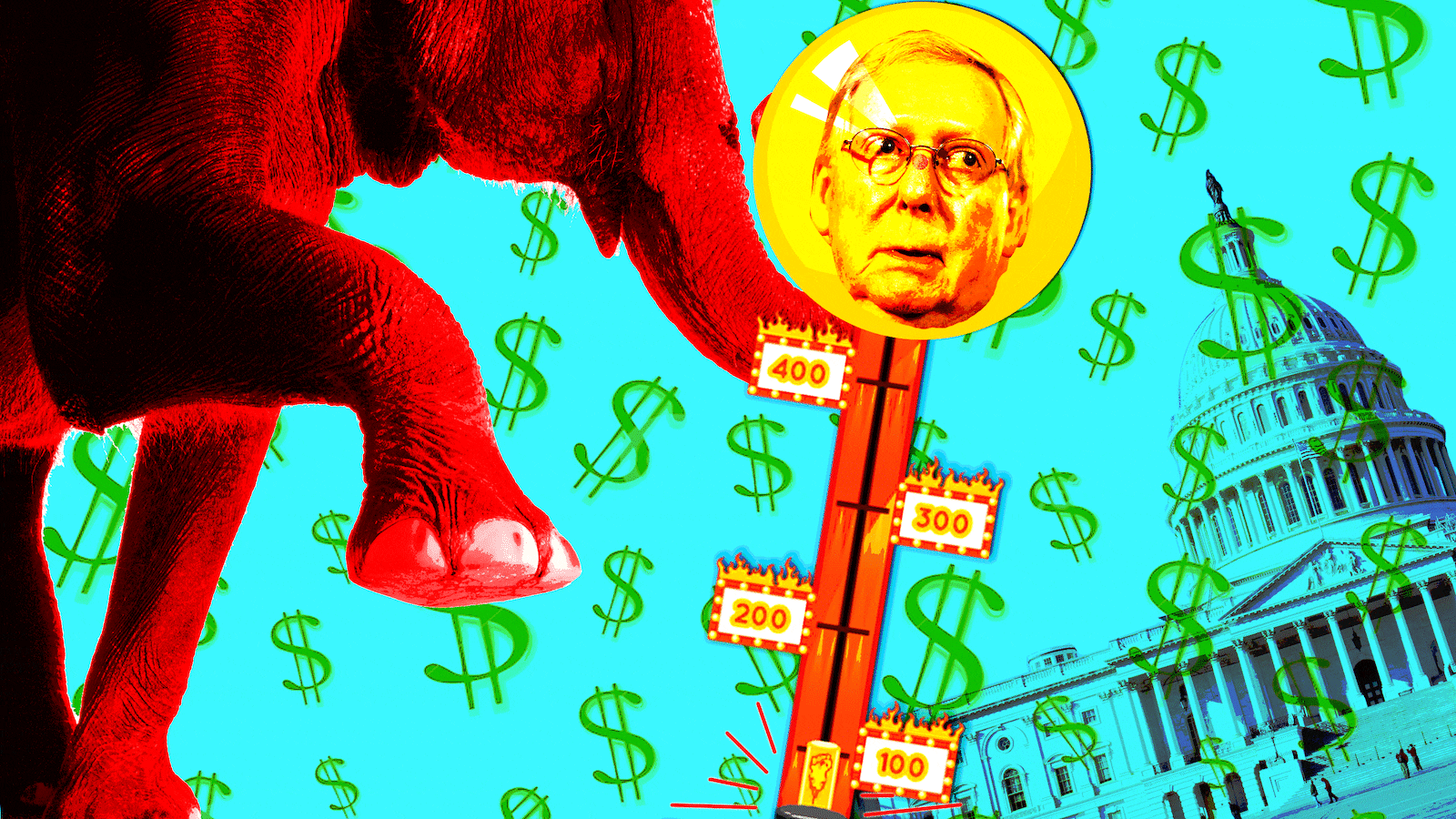Senate Republicans’ tax overhaul bill cleared a key hurdle on Wednesday when lawmakers voted along party lines, 52 to 48, to open up debate on the legislation, setting up a final vote later this week.
But a significant obstacle still remains as the bill text gets tweaked behind closed doors.
That stumbling block was introduced on Tuesday, when Senate Republican tax writers amended their legislation to satisfy a few of the caucus’ deficit hawks. Lawmakers agreed in principle to a so-called “trigger mechanism” that would be added to the tax bill. The purpose of the trigger was, ostensibly, to mitigate the effects of a ballooning deficit by raising tax rates if economic growth doesn’t meet projections. The result was a vote of confidence from, most notably, Sen Bob Corker (R-TN) at Tuesday’s Senate Budget Committee meeting, where the GOP’s tax overhaul bill was reported to the Senate floor for an eventual vote.
Hours after its introduction, however, it became clear that not everyone in the party was enamored with the proposal—or even quite certain what it would entail.
“I’d rather drink weedkiller than vote for an automatic tax increase on the American people,” Sen. John Kennedy (R-LA) said bluntly, adding that he believes the trigger will be the biggest point of contention among his caucus.
Conservative advocacy groups weren’t thrilled about the trigger mechanism, either. And they were out in full force on Wednesday, arguing that a tax hike during an economic downturn is irresponsible. Grover Norquist, an anti-tax crusader the the president of Americans for Tax Reform, said “a trigger that threatens tax hikes is a self-fulfilling threat to kill jobs.” Americans for Prosperity said a trigger “would add unnecessary complexity and uncertainty into the tax code, stifle the economy and generate less revenue.” Others argue that Republicans should try to find areas to cut government spending.
“If they’re truly worried about the deficit and they want to establish a trigger, then they should limit the size of government,” Club for Growth President David McIntosh said in a statement.
Sure enough, later in the day Republican senators began discussing a revised trigger mechanism along the lines of what McIntosh suggested—one that would establish automatic government spending cuts instead of tax increases. But even after lawmakers met at their daily lunch on Wednesday, there was no consensus on the matter. Individual GOP senators told The Daily Beast that the caucus remained divided on the issue, and the details on a possible trigger had not been ironed out as of Wednesday evening.
Though the bill’s legislative language still remained unclear, senators hinted before Wednesday’s procedural vote that they’d support the bill to simply move along the legislative process.
“I said at the beginning of this process and I thought people made the same mistake in health care—I said I’m not going to draw lines in the dirt. I’m not going to let the perfect be the enemy of the good,” Kennedy said.
Kennedy declined to say whether he would vote for a final product that contains a trigger mechanism that would result in a tax increase. The senator previously said he would have to be “drunk” in order to vote for something that would trigger tax hikes, and on Wednesday he reiterated that he “may have to get drunk to vote for the bill”—an indication that a trigger might not affect the outcome of his vote.
His GOP colleagues appeared to be on the same page, noting that in a year filled with prominent defeats, a legislative win mattered more than disagreements over specific provisions in the bill.
“Not at all,” Sen. Thom Tillis (R-N.C.) told The Daily Beast when asked if the inclusion of the trigger mechanism would affect his vote. “We need to produce an outcome.”
Where the issue will grow more complicated is when the bill—should it pass the Senate later this week—is merged with the tax overhaul passed by the House of Representatives. It is there that lawmakers must ultimately decide if the final product includes a trigger mechanism or not; and if that trigger mechanism would be a tax hike or spending cuts.
Most lawmakers were evasive on that point.
“What I’m for is businesses big and small having every possible incentive to put more money on the table and become more competitive,” Sen. Roy Blunt (R-MO) told The Daily Beast. “And anything you do that puts a question in people’s minds, I think doesn’t give the economy all the opportunity it really can get out of this bill. But we’ll look at what it takes to pass this bill.”
Even Corker, who helped birth the trigger concept, seemed unclear on Wednesday night about what the final version would look like and how it would affect his vote.






